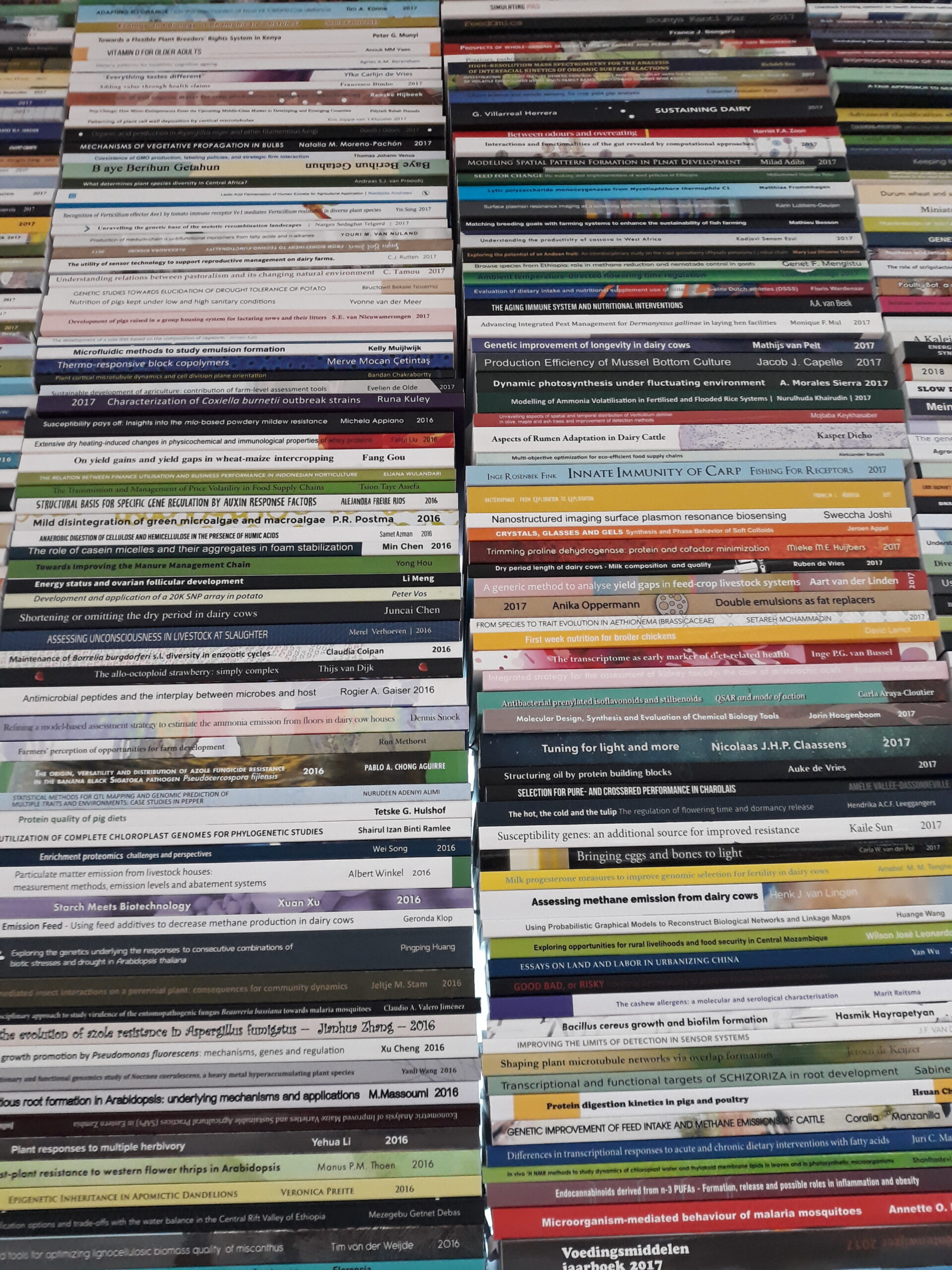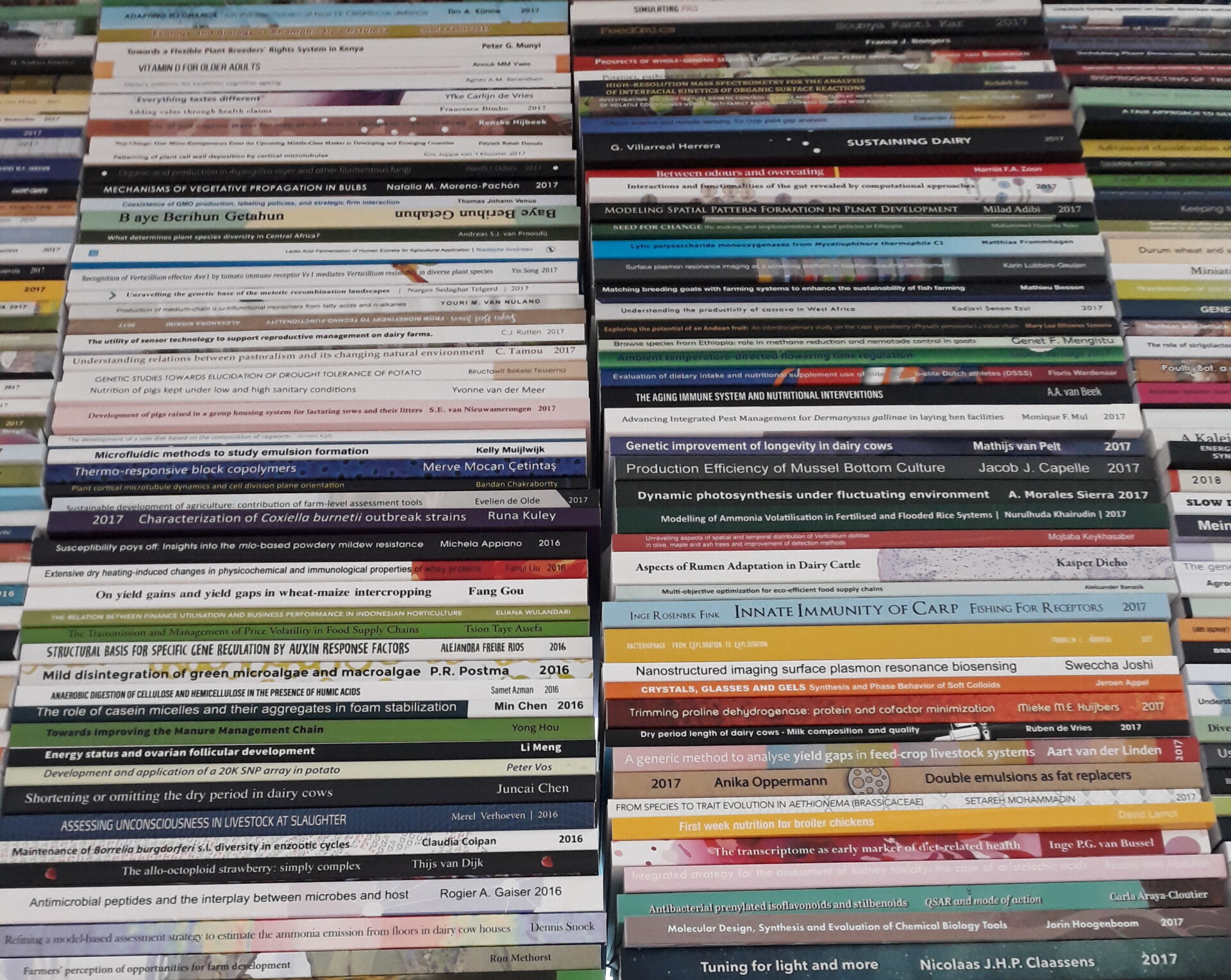More than 250 PhD students receive their PhDs at WUR every year. It is impossible to describe and summarize all these theses. In the column ‘PhD theses in a nutshell’ the selection of our science editors is briefly presented.
Yellower rice
Leaves are usually green. The greener they are, the more photosynthesis. But they can also be too green, which means not enough light penetrates to leaves lower down the plant. That problem can be resolved with yellower leaves, shows Chinese PhD candidate Zhengxiang Zhou. Rice varieties with yellower leaves ensure a better distribution of light over the plant and therefore a higher overall yield. The trick is that the rice plant creates less chlorophyll and more proteins that play a role elsewhere in the photosynthesis. The plant therefore makes more efficient use of its inputs.
Exploring the potential of modifying leaf colour to increase rice productivity via improving photosynthesis and sink-source relationships.
Zhengxiang Zhou. Supervisor Paul Struik
Poplar with a memory
The Lombardy poplar ‘remembers’ period of stress due to drought, cold or heat. Trees exposed to such stress are more susceptible later on to poplar rust. The Ecuadorian PhD candidate Christian Javier Peña-Ponton investigated how that memory comes about. He looked at whether methylation of the genome plays a role. Methylation involves attaching methane molecules to the genes. This ‘signal’ then changes the expression of the genes. Peña-Ponton’s experiments showed stress can cause methylation, but the interactions are complex.
Environmentally induced DNA methylation variation.
Christian Javier Peña-Ponton. Supervisor Wim van der Putten
Home test for pets
Are home tests suitable for nutrition trials with dogs and cats? Yes, shows research by Evelien Bos. She studied what a protocol for such a home test should look like. She also looked at the effect the pet owner’s ability to stick to the protocol had on the outcomes. After all, tests in a controlled lab are quite different to the home situation; dogs and cats get other food in addition to the test feed. But home tests do work. Bos plans to market her results in her own company.
Determining protocol requirements for in-home digestibility and palatability testing of pet foods.
Evelien Bos. Supervisor Wouter Hendriks


